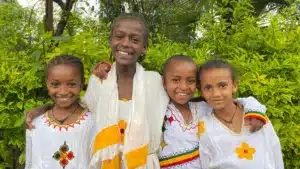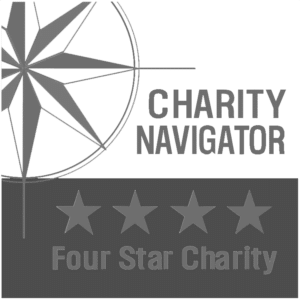Curious about adoption? AGCI’s Julie Salwasser has answers to 6 more of your top adoption questions. Check out our first blog, “Your Top Ten Adoption Questions Answered” for more answers to common adoption questions.
1. How can we ensure that the child is a legitimate orphan?
There is a process to determine that a child is legally eligible for adoption. If the child’s birth country is a Hague country, the process must also be Hague compliant. Before issuing a visa, the US Embassy reviews the process to ensure that all procedures have been followed. While these measures to ensure legitimacy exist, it’s still important for families to choose an adoption agency that they fully trust. As adoption agencies are the ones pursuing relationships in-country, it’s particularly important that the family can trust that no documents have been falsified. It’s especially crucial to be sure that agencies do their due diligence in non-Hague countries where corruption can be more common.
2. Is the adoption final?
Yes. In most countries the legal process occurs in country and the adoption becomes final in country. Once final, the adoption is permanent and irrevocable. Before the child can be placed, they must first be legally relinquished by their birth parents or go through the abandonment process. To go through the abandonment process, the central authority needs to show that they have tried to contact all biological family members before the child can be placed for domestic or international adoption. If the family is responsive to contact, they must then decide that they are unable to care for the child or the government may reach this conclusion as well.
3. Do we have to go through re-adoption?
In most countries, the child will enter the United States as a US citizen and re-adoption is not necessary. However, AGCI strongly recommends that families pursue re-adoption for a number of benefits. Re-adoption provides the adopted child with a birth certificate issued from their adoptive family’s home state, which can be very useful. If the family plans on changing the adoptive child’s birth name, this can also be done during the re-adoption process. Once the adoptive child comes home, AGCI will provide information to the adoptive family on how to pursue re-adoption.
4. What is the requirement for post-adoption reports?
Post-adoption report requirements vary by program. There is often a series of reports required by a social worker. Some programs also require additional self-reports written by the adoptive family. It’s very important for families to comply with these reports for AGCI’s license and for country follow-ups. Additionally, these reports are an important support tool that provides families with practical benefits and an opportunity to ask questions and address any concerns.
5. Can AGCI work with families outside of the states we are licensed with?
Yes! While we are licensed to provide home study and post-adoption services in Oregon, Ohio, Kentucky, Michigan, Texas, Indiana, and Washington, families outside these states can also pursue adoption through AGCI. The majority of our adoptive families are actually outside of our licensed states! If a family would like to adopt through AGCI outside of the listed states, they will work with one of our cooperating agencies in their home state for home studies and post-adoption reports. AGCI will still remain the placing agency and primary point of contact. For a list of our cooperating agencies, click here.
6. Why does AGCI like to place children following the natural birth order of the family?
AGCI tries to maintain the natural birth order in adoptive families because we like to honor the place that the children hold within the family. For example, if an adoptive family has a 7-year-old child, we would try not to place a child over the age of 6 with that particular family. We’ve found that certain difficulties with transitions can be avoided when we follow the natural birth order. Different roles and behavior expecations are often associated with birth order. It’s also helpful to remember that many children placed within a family may not have lived in a family setting before. It can be helpful for adoptive children to learn how to behave in a family setting by learning from older siblings. Maintaining birth order is also important for children already in the family as the oldest child is often afforded certain privileges.
However, when it comes to placing waiting children or older children, AGCI frequently considers exceptions to this. In this scenario, we would prepare the family on how these placements can be unique.
More questions? Check out our How to Get Started page and begin your adoption journey today!














2 Responses
Our daughter a US citizen, and her husband a Norwegian citizen, live in Bergen Norway. They have not been able to have children. Is there any chance they could adopt a baby?
Thank you so much for your question! It is possible to adopt through a US agency while living in another country, however there are some aspects that are very challenging. The first thing that would be needed is to identify whether there is a US licensed Social Worker that would be able to facilitate a home study. If this is available then it is more possible, but it would still be challenging. It might be easier to work with an agency in Norway,-due to her husband’s citizenship. Please have her email inquiry@allgodschildren.org for more information.